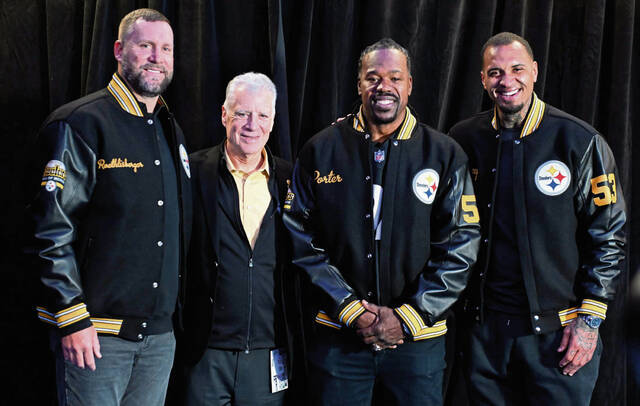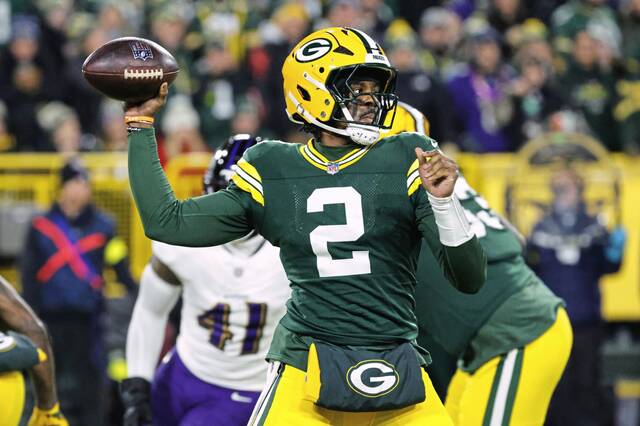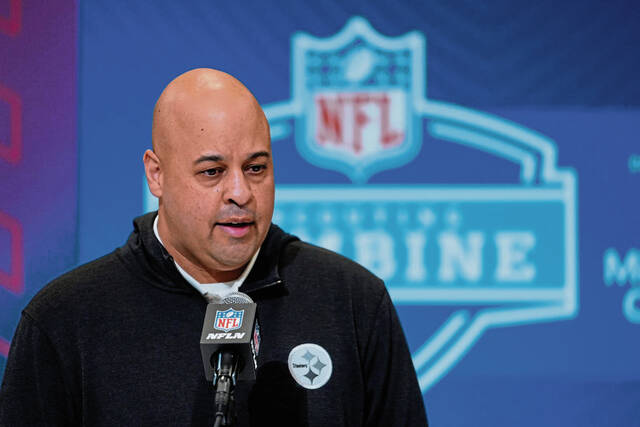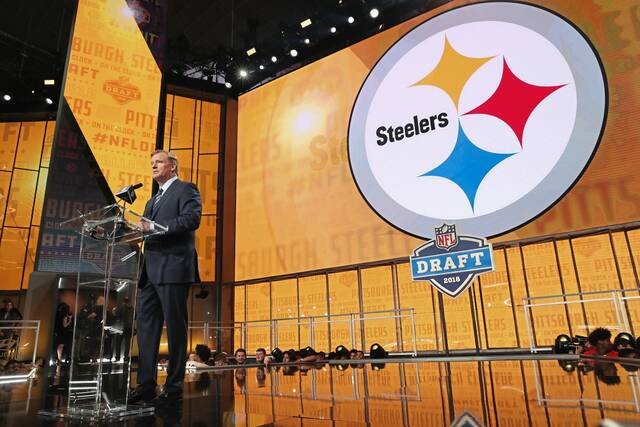With the NFL’s overtime rules at the top of many fans’ minds in the wake of Sunday night’s thrilling playoff game between Buffalo and Kansas City, it has been largely forgotten that the first overtime played under the current format involved the Pittsburgh Steelers.
In this town, it’s not remembered for that. It is known simply as “The Tebow Game.”
A decade ago, few complained (in Pittsburgh or beyond) that the Steelers were done in by rules that did not give them a chance with the ball in overtime of a playoff game. The Denver Broncos scored on the extra session’s first play from scrimmage — an 80-yard touchdown pass from Tim Tebow to Demaryius Thomas — in an AFC wild-card game.
16. TEBOW TIME
— Gil Brandt (@Gil_Brandt) August 20, 2019
Jan. 8, 2012
On first play of overtime, Tim Tebow tosses 80-yard touchdown pass to Demaryius Thomas to stun Pittsburgh, 29-23, in Wild Card playoffs.
Factoid: The game-winner was the last TD pass of Tebow's career. pic.twitter.com/OWRs1OrVwz
Today, though, many on social media are up in arms that the Buffalo Bills did not get a chance to match the Chiefs in overtime of Kansas City’s 42-36 win Sunday.
Perhaps that’s because in 2011, when the rule was modified, people were ecstatic after the league played 37 seasons with a true “sudden death” format. Beginning with the 2010 season’s playoffs (no games went into overtime that year), postseason games were not going to end if a field goal was kicked on the first possession.
That rule was extended to the regular season in 2012, removing the possibility of a team winning the coin toss and perhaps needing to advance only 30 yards or so to win a game.
Sunday, after 25 points had been scored over the final 2 minutes of regulation, the Chiefs couldn’t win the game with a field goal after they won the coin toss. Patrick Mahomes, however, made that moot when he drove the Chiefs with relative ease — 75 yards on eight plays — for a “walk-off” win.
We'll talk about Patrick Mahomes soon. But the greatness of Hill, Reid, and especially Kelce (the greatest pass-catching tight end of all time) shouldn't be ignored.
— Seth Keysor (@RealMNchiefsfan) January 24, 2022
I wrote about how each was needed to help Mahomes drag KC to a win yesterday. https://t.co/VjOTbVP5FI pic.twitter.com/xqWPK6mkHk
It was an example in which, even if the coin toss’ importance has been greatly weakened, it still can be a major determining factor in who wins — if both offenses are stellar.
But the coin toss isn’t the lone determining factor, and the Steelers are proof. Since the current rules were instituted, only once among 10 regular-season overtime games the Steelers have played has the team that won the coin toss also won the game.
That came in 2017, when the Chicago Bears won the flip, took the ball and drove 74 yards in four plays.
The only time the first-drive-field-goal-doesn’t-win applied to a Steelers overtime game was the 2016 season finale against Cleveland. The Browns kicked a field goal after winning the toss, but the Steelers put together a 75-yard touchdown drive to win.
That remains the lone game the Steelers have played in which the ball was snapped in overtime while the score was not tied.
Three times under the current format during an overtime game involving the Steelers, the team that won the toss lost the game when the opponent scored on its first possession.
Just three weeks ago, the Steelers defense got a stop in Baltimore. The other two second-possession wins happened in 2012. Each time, the team that lost the toss won on OT’s second possession after taking over via an interception. The Steelers beat the Chiefs this way but lost to the Dallas Cowboys.
The Steelers lost all three overtime coin tosses this season but lost none of the games, beating the Ravens and Seattle Seahawks and tying the Detroit Lions.
The most unusual overtime scenario the Steelers have played under the current rules came in 2019 against the Ravens. The Steelers won the toss, but coach Mike Tomlin, out of respect for his defense and Baltimore All-Pro kicker Justin Tucker, elected to kick off.
The strategy was sound: Don’t let Tucker’s immense range play a factor in ending the game quickly. The strategy worked, too, as the Ravens went three-and-out. But the Steelers lost anyway (because of a JuJu Smith-Schuster fumble on their second offensive snap).
Talking about the worst playoff losses in Pittsburgh sports history on the @FanMorningShow...here’s an infuriating one. The name Joe Nedney still makes my blood boil. I cried into my Kendrell Bell jersey that night. pic.twitter.com/Zg32qFM1Ua
— Matt Koll (@MKoll15) January 6, 2021
The Steelers were victims of one of the highest-profile defeats under the original NFL overtime format. In a divisional-round playoff game after the 2002 season, the host Tennessee Titans won the coin toss and quickly drove inside the Steelers’ 15 yard line.
Joe Nedney, amazingly, missed a 31-yard field goal attempt, but his embellishment of Dwayne Washington making contact with him during an attempt at a block gave him another shot.
Nedney made the 26-yard try, ending the Steelers season.
Under the since-modified rules — the ones they’re so mad about this week in Buffalo — the Steelers would have been able to play on.
Hey, Steelers Nation, get the latest news about the Pittsburgh Steelers here.

















